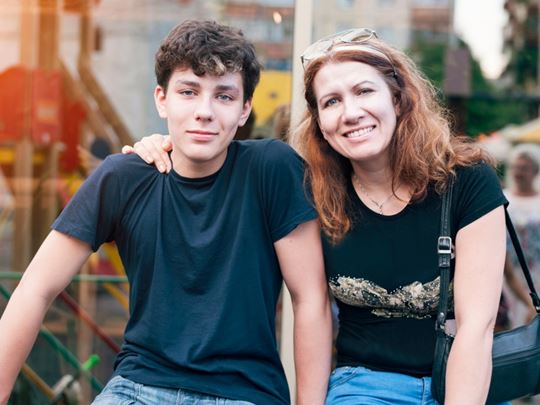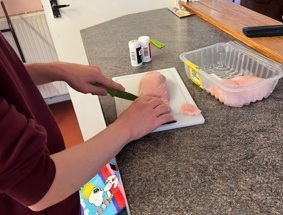Whether you’ve spent a few days or a few years with your foster child, you have put your heart and soul into caring for your foster child. And saying goodbye can be heartbreaking. This can leave you feeling lost, sad, and not knowing when your next placement will be.
If you’re in the situation of ending a foster care placement, then it’s important to get the support and guidance you need. In this guide, we’ll give you tips for when a foster placement ends and what your foster agency can do to support you through this time.
Why do foster placements end?
Saying goodbye to a foster child can be a difficult experience. As a foster parent, your aim is always to provide a safe, loving, and nurturing environment for your foster child. But you’re also aware that the placement will end at some point. Whether it’s days, weeks, or even years.
With fostering, the main objective is to always reunite the child with their birth family. When or if that happens, is of course, a joyful thing. However, it can cause pain and sadness on your end.
But, what happens when a foster placement ends and why do they end?

There are several reasons why placements end. These include:
- Reunification – when the child returns to their birth family.
- Adoption – when the foster child is adopted by another family.
- Joining their siblings – they may move to the same foster family as their siblings.
- Specialist placement – if the foster child has complex needs and requires more specialist care that is beyond your current abilities.
- Leaving care – the young person in your care is old enough to live independently.
- The placement breaks down – while we do everything we can to ensure there’s a good match between children and foster families, sometimes things don’t work out. It doesn’t happen often, but when it does, it’s usually because a foster parent is struggling to cope with certain behaviours, or they’ve repeatedly tried to manage behaviour with little or no success, or new risks have emerged that mean it’s no longer safe to look after them. It’s a sad situation for everyone involved, and the decision to end placements in such circumstances is never taken lightly.
Tips for ending foster placement
Whatever the reason your placement is ending, these tips should make the process a little easier.
-
Ensure you receive the right support
When a foster placement ends, it’s so important that you receive support and care from your foster agency.
A great fostering agency is there for you 24/7, before, during, and after caring for a child. This ensures no matter the day or time, you’ll always have a friendly ear and a helping hand available to you.
Never be afraid to reach out and ask for help if you need it. Your foster agency should treat you like a team member, and no feeling or query is too big or small to deal with.
-
Try and stay positive
Even if you’re feeling sad about your placement ending, it’s important to try and stay positive.
You’ve played a huge role in helping your foster child, so when it comes to talking to them about their time with you ending, be positive and hopeful about their future. Explain to them why they are moving on, when it will happen and where they are going. Focus on the good things to come out of this.
If you can help them feel better about the changes they are about to go through, it could help with your emotions too. Look at the time you’ve spent together as a blessing, and that you’ve contributed to the growth and happiness of a vulnerable child.
-
Maintain a close relationship with the social worker and foster agency team
Being part of the team that cares for your foster child is always vital, but never more so than when a placement is ending.
To ensure the placement ending transition runs as smoothly as possible, keep up with communicating with your foster team, including the foster agency and social workers who are your main point of contact.
They will do everything in their power to support you and can even refer you to aftercare support groups once the child has left. Your agency should always be on your side and these professionals form a close-knit partnership around you and your foster child.
-
Give your foster child a memento
The time you have spent with your foster child is precious. You would have formed a bond that makes you an integral part of each other’s lives. But ending foster placements doesn’t mean you both have to forget each other.
Give your foster child something physical they can take with them to remember you and the time you spent together. Something like a scrapbook is a lovely idea. You can fill it with photos, letters, poems, funny stories, things you love about them, and family memories. Why not make two copies so you can have one too, that way, you can look back through it whenever you’re missing them.
-
Support leaving care
When a foster placement ends because the child is transitioning into adult life, you can help prepare them for their next step. Which can also give you comfort and assurance that you’re making a further impact in their life.
Work with your social worker to help create a plan for them. Understand their goals in life and give them life lessons that they can take with them on their next steps. It’s important to reassure them that the world is their oyster, and just because they’ve lived in foster care throughout childhood, they are deserving of the same opportunities as any young adult.
You may also want to let them know they can call you or write to you anytime. Keeping that line of communication open when they’re venturing out into the world will be vital in helping to maintain that sense of security.
Ending a long term foster placement
Saying goodbye to a long-term foster placement can be especially difficult. The main focus should always remain on the best interests of the child in care. But their leaving can put a lot of strain on you and your family, who would have come to love and care for them.
If you have birth children at home, ensure they’re also prepared for the placement ending. It’s very likely they would have formed a close relationship with their foster sibling, so they will also need support for when they leave. Sit down with them and explain why they are leaving so they can understand.
Just because your foster child is leaving, it doesn’t mean you have to lose touch with them. In many cases, it’s appropriate to keep in touch with the child even after they leave. Speak to your foster agency and social worker to see if this is an option, and then make sure your foster child knows how to contact you if they want to.
This can help when ending a long-term foster placement, making the transition a little easier for both of you.

How to tell a foster child they are leaving
Telling a foster child that they are leaving can be a difficult and emotional conversation. Here are some tips on how to approach the conversation:
-
Be honest and direct
It’s important to be honest with the foster child and to explain the situation in clear and simple terms. Let them know why they are leaving and what the next steps will be.
-
Be empathetic
Recognize that leaving can be a traumatic experience for a foster child, so it’s important to show empathy and understanding. Let them know that you understand how difficult this is for them and that you are there to support them through the process.
-
Validate their feelings
Allow the child to express their feelings about leaving and validate their emotions. Encourage them to share their thoughts and feelings and let them know that it’s okay to feel sad, angry, or confused.
-
Provide support
Let the child know that they will not be alone in the transition process. Provide them with information about their new placement, including the name and contact information of their new caregiver. Offer to help them pack their belongings and reassure them that they will be safe and cared for.
-
Be available
Make sure the child knows that they can contact you if they need to talk or if they have any questions. Let them know that you will always be there for them, even if they are no longer in your care.
Remember, the goal of the conversation is to help the foster child feel supported and cared for during a difficult time. By being honest, empathetic, and available, you can help the child navigate the transition to their new placement with as much support and care as possible.
Ending foster placement can be hard
And if you’re in this position and wondering what happens when you end a foster placement, then we hope this guide helped.
At Foster Care Associates, we understand how difficult placement endings can be. This is why we’re here for you, every step of the way. Giving you 24/7 support and advice to ensure you never feel alone, unsupported or overlooked.
If you need additional support during or after placement, or you want to discuss transferring to us, then download our Transfer To Us Guide. Our friendly and dedicated team can’t wait to welcome you to our family.
How easy is it to change foster agencies?
Transferring to FCA is easier than you might think, you’ll have our dedicated team with you every step of the way. Your application will be fast-tracked, making the whole process quick and easy. We always fast-track experienced foster families through the assessment process – aiming to complete it within just 12 weeks of your initial enquiry.
Meet our Operations Director, Neil Morris to discover the fantastic benefits of transferring to FCA.





